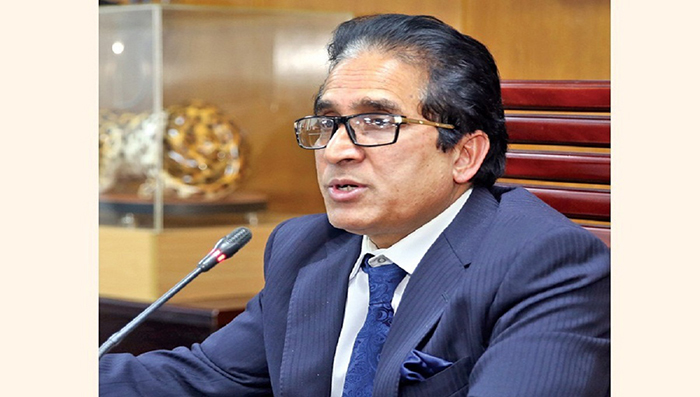National Board of Revenue chairman Md Mosharraf Hossain Bhuiyan On June 18 said they would find an acceptable solution to the proposed imposition of 15 per cent tax on the retained earnings and reserves of publicly listed companies.

He made the commitment after foreign investors raised concerns over the proposed fiscal measure and demanded its review.
The investors claimed it would affect business expansion by multinational companies.
The proposed tax, if made effective, would also facilitate drainage of money from the country in the form of dividends, as most MNC investors stay abroad, the investors said, at a luncheon meeting organised by the Foreign Investors’ Chamber of Commerce and Industry at Hotel Westin in Dhaka.
Mosharraf said the fiscal measure, including two others, had been taken to give some relief to investors.
“Definitely, we will look into the matter and sit together to find an acceptable solution,” he assured the investors.
The share market is volatile. It is was not in a good shape because of many of the actors familiar with the business and investment climate of the country, he said.
The NBR chairman advised foreign investors to sit with the NBR before June 23 to discuss the related issues.
He also promised to consider the demands of VAT withdrawal on e-commerce, reduction of the minimum tax on mobile telephone operators and other issues before the proposed budget would be passed in Parliament.
He also said that the NBR imposed VAT on e-commerce to avoid any difference between traditional businesses including super markets.
If VAT was withdrawn from e-businesses, others sectors would also demand VAT-free facilities, he explained.
Mosharraf also argued in favour of a tax hike on sugar and edible oil. “The price of sugar would rise by Tk 5 a kg, but it is unlikely to affect consumers as the price of the sweetener was lower compared to other essentials including vegetables,” he said.
According to NBR estimates, the price of edible oil would also rise by Tk 3–5 a kg due to the imposition of VAT.
But the hike would be tolerable, Mosharraf said.
FICCI president Shehzad Munim said the imposition of 15 per cent tax on retained earnings and reserves, as well as on stock dividend, needed a review.
Almost 36–40 per cent of Bangladesh’s foreign indirect investment comes from the retained earnings of MNCs operating in the country, he observed.
MNCs retain a significant amount of their earnings to fund further growth, he added.
If MNCs give away all the money as divided, most of it would go out from the country as most of the investors live abroad, he pointed out.
He also demanded a reconsideration of a few other tax measures, including an increase in the minimum tax on mobile operators.
VAT at 7.5 per cent on e-commerce would also jeopardise the growth of this sector, he said.
Mobile operator Robi’s chief executive officer Mahtab Uddin Ahmed said the proposed increase of the minimum tax on the telecom sector to 2 per cent from 0.75 per cent was discriminatory in terms of the Foreign Investment Protection Act.
Currently, only Grameenphone is making profits.
Other operators would have to pay the tax from their capital as they do not make profits, said Mahtab Uddin Ahmed said.
He requested the NBR to withdraw the tax, saying the operators would not be able to survive otherwise.
In response, the NBR chairman said that all companies should make profit.
Bangladesh Association of Software and Information Services president Syed Almas Kabir demanded VAT exemption on e-commerce for the next five years.
FICCI vice-president Francois de Maricourt, executive director Jamil Osman and other members of the FICCI were present at the meeting.








